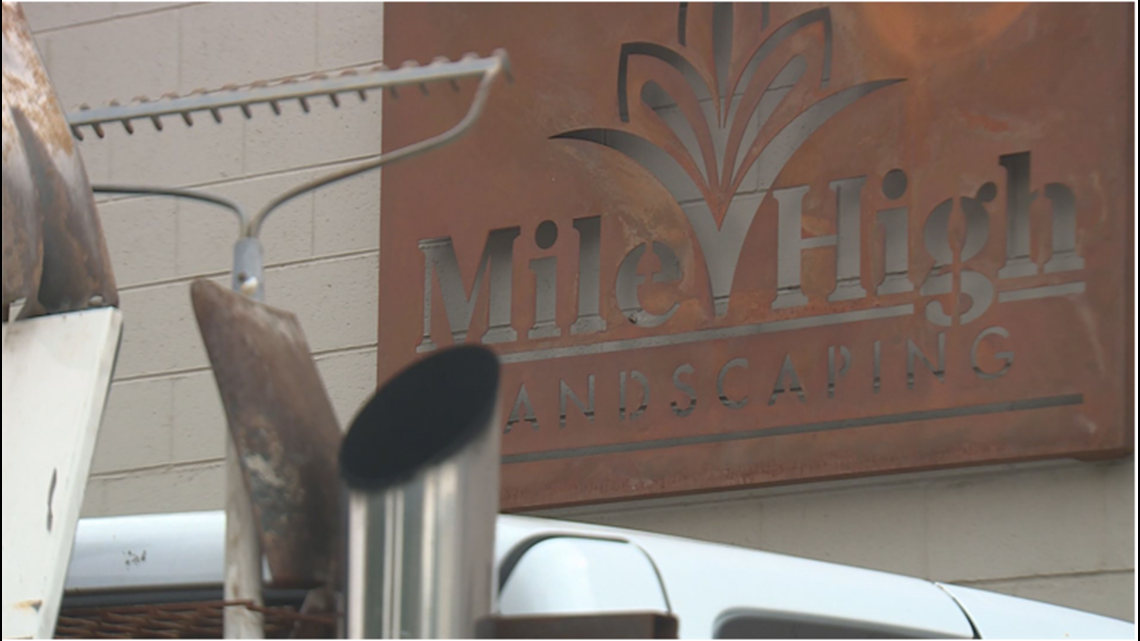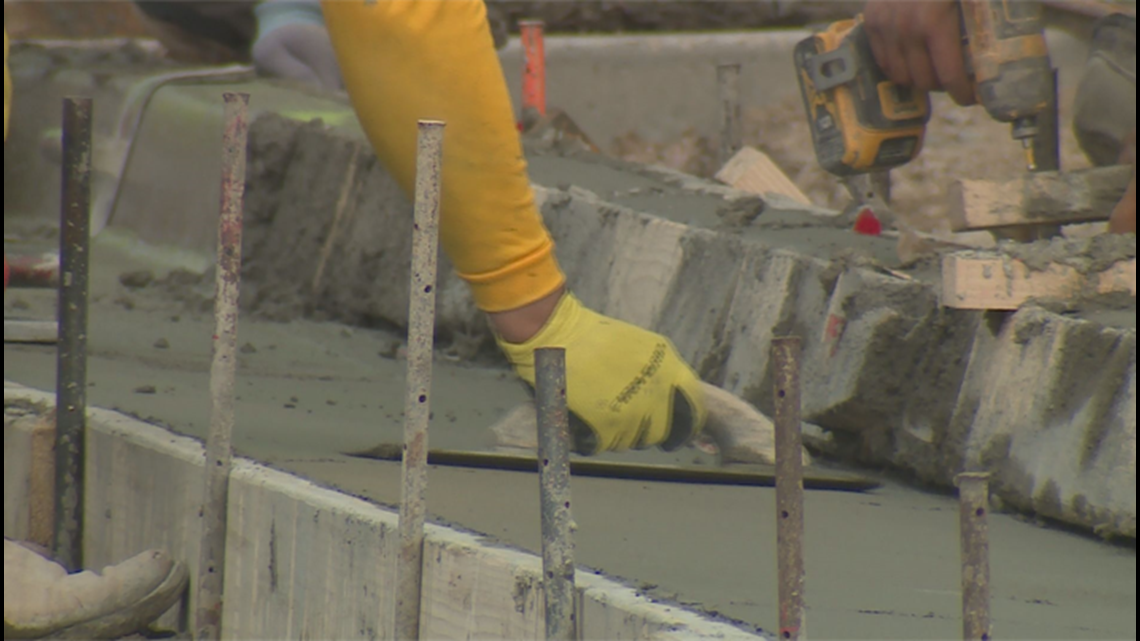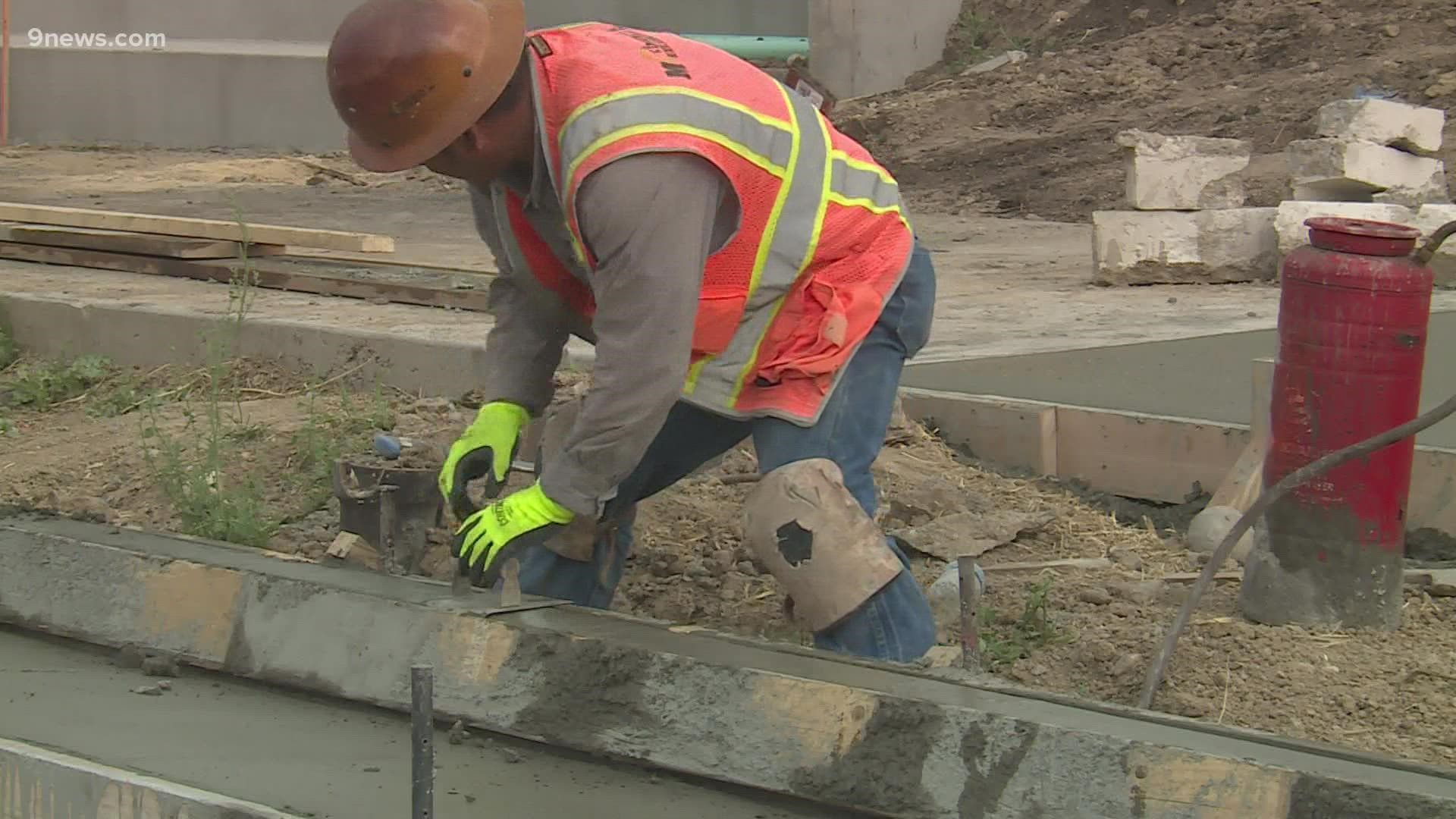DENVER — Tuesday marked the fifth straight day that all of Colorado was under an air quality alert with the haze blocking the views we've come to expect.
The Front Range has seen some of the worst conditions in the world over the past week, and experts have told people to limit their time outside, including working indoors more.
But for some people, their job requires more time outdoors, especially construction workers and of course landscapers.
"...this kind of persistent regional haze and in particular pollution combined with the ozone for days and weeks on end is pretty unusual. And I think it's becoming more common, which is a big concern," said Dr. David Beuther with National Jewish Health, a Denver hospital that specializes in respiratory treatment.
While he explains the potential long term impacts on someone's health from a persistent level of poor air quality, some workers in the outdoors say they're faring well through it so far.


"Shade up, cool down, keep on going"
Luckily for Steve Dietsch, a project manager for Denver-based Mile High Landscaping, he says so far the air quality hasn't bothered him or his crew much.
"Really hasn’t been affected too much. You work at a steady pace all day long and just go from there. You get a little tired from the heat more than anything else," Dietsch said. “I haven’t been noticing much myself. Then again I’m a Colorado native.”
However, he does say when there are active fires that are local to Colorado, that's when he's able to notice a difference.
“The closer fires, the more local fires, you at least see and smell it," he said.
Overall he says the air quality hasn't proven to be an issue for him and his crew, but adds that if it is, they essentially power through it, take breaks and stay hydrated, among other things.
“Shade up, cool down, keep on going," he said. "Smoke and haze right now, it’s just a curveball. Swing at it, and you either hit a single or a strikeout one of the two."


Possible health impacts
Dr. David Beuther with National Jewish Health explained that the potential threat to any sort of respiratory impacts from the haze is the particular, and small soot floating around.
"...it's really kind of two major components. One is ozone, which is a gas that's formed related to heat and ultraviolet radiation and is very common in the summer. But the new thing here is also the particulate pollution," he said.
He adds that it in part, it comes down to the amount of time being outside that could determine the severity of any possible health impacts from the poor air quality.
"There's no completely safe concentration or time of exposure. The longer you're exposed, the higher the concentration, the worse the risk that it could cause temporary or even eventually long term side effects," he said.
When it comes to construction workers or landscapers, or anyone that works a demanding outdoor job, he says he understands that their system may be tougher against the poor air quality.
"...it's really the combination of the concentration of the pollution with the duration of exposure and also kind of one's individual susceptibility," he said. "So generally, if you have a severe, harder lung disease, you're probably not working in a tough, outdoor, dusty job like construction or landscaping. And so certainly individuals working in those areas already have some pretty tough exposures."
However, he still sends a word of caution because of the level of the poor air quality adding to the amount of dust (among other substances) that people who work outside are exposed to.
"And so we may not see a lot of people with severe chronic illness working these jobs and then having an impact. I think we're going to see two things. One is we're going to see healthy workers who didn't really have any trouble with these exposures, that now, this is pushing them over the edge," he said. "Most of them will have short term bothersome symptoms like cough and throat irritation. It'll be pretty uncomfortable, but they're maybe going to tough it out and hopefully air quality improves and keep working at their job."
Additionally, he does worry that if this level of poor air quality persists for a long period of time, the long-term impacts would be noticeable.
"And so we may see that if you have a dusty job for years already and we add in this kind of poor air quality, I worry we're going to see an acceleration of people developing chronic lung illness like asthma or COPD emphysema from this," he said. "...if somebody has a milder chronic condition like asthma that's flaring up, in order to keep working, they may need to be in close contact with their doctor, talking about maybe increasing their regular daily medication just to be able to tolerate their job. And I think we do see people doing that."
SUGGESTED VIDEOS: Colorado air quality

